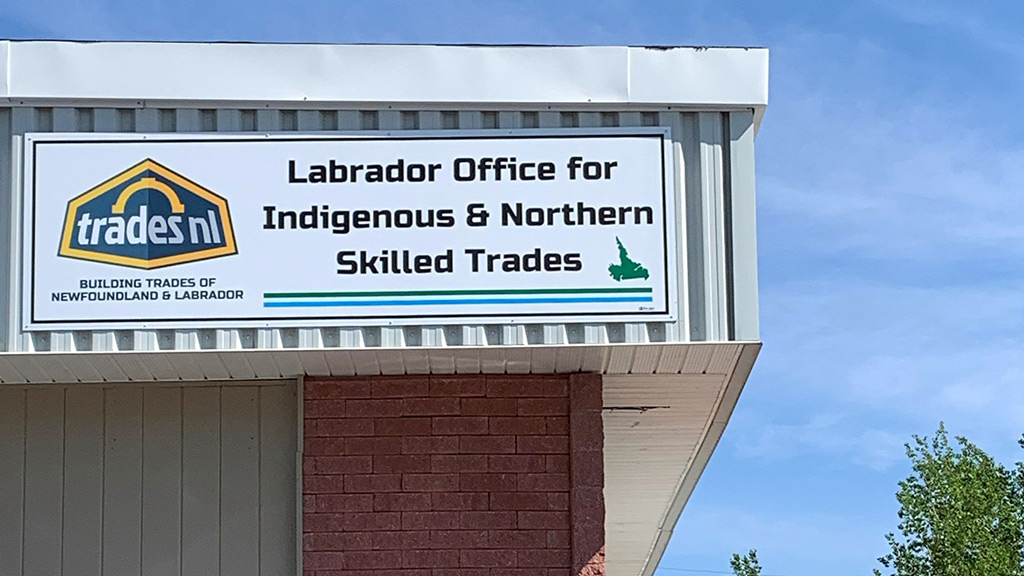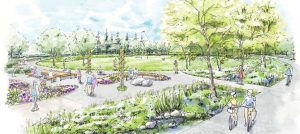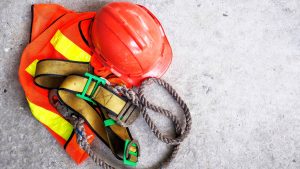An initiative to increase the number of the Innu and other Indigenous groups in the skilled trades in Labrador comes at a time when “there are some potentially big projects in hydro and mining” on the horizon, says Darin King, executive director of Trades NL, which represents 16 building trades in Newfoundland and Labrador.
“Our intention is to have as many of the Indigenous population trained up…so that they have the skills required when those jobs become available and hopefully some of them will be ready to take on leadership opportunities,” he explains.
Headquartered in St. John’s, Trades NL is in partnership with the Innu Nation operating the new office at Happy Valley-Goose Bay, Labrador.
Called the Labrador Office for Indigenous and Northern Skilled Trades, it will receive $1.45 million from the province for three years.
Among the range of its objectives is recruiting high school graduates into the trades to helping apprentices deal with union matters.
“It’s a one-stop shop in Labrador so they can go in there and pretty much get whatever they need,” King adds.

While the office won’t offer training, King says it will partner with some of the bigger unions such as carpenters, electricians and ironworkers which have training facilities.
King says there have been a number of missed skilled trade opportunities for Indigenous workers on projects such as the Muskrat Falls hydroelectric project in Labrador.
“They have gotten jobs but they tended to stay at the entry level,” says King.
The new office will build a database, identifying the pool of apprentices — some of whom left the apprenticeship program for better paying but short-term security and labour jobs.
“We want them to take a long-term view and help them get their training completed,” King states.
“I think this is going to have a big impact in Labrador,” says Paul Rich, manager of the new office which will has a staff of three. “With all the services and infrastructure work that is coming, this is where the major business opportunities are for building good skilled craftspeople.”
Rich says a lot of synergy to build an Indigenous workforce must occur between the new office, the building trade unions, the provincial government and companies behind major developments in the works for Labrador.
In the past often developers and builders brought most of their workforce from elsewhere and employed only a small percentage of local Indigenous workers in skilled positions, he says.
Part of the problem has been that locals who started apprenticeships never finished them because of many obstacles such as a lack of access to job markets and to apprenticeship training.
Most trades training is done in or around St. John’s which can be a hurdle for some Indigenous Labradorians, but King says trade unions are open to solutions, including sending trainers to Labrador.
Language can also be a barrier for many residents where English is commonly their second language. Rich says the building trade unions are open to solutions, including the use of more translators.
He adds the new office will closely monitor the apprenticeship numbers and work with the Innu Nation and other Indigenous groups to ensure their workers are guided through apprenticeship to achieve Red Seal certification.
Recruitment drives through schools and on social media will also be emphasized.
Rich says members on the board of directors at the new office include Innu, Sheshatshiu and Moushuau Innu First Nation as well as the provincial government and several trade unions.











TradesNL, is a wolf in sheeps clothing, and has detrimentally effected the employment of Labrador workers.
There’s are hiring, cost plus agreements, with contractors in muskrat Falls that companies exploit, artificially escalating the cost, gaining more profits, utilizing the more expensive workforce.
Aboriginal workers have systematically been discriminated against, with hiring, and training, then told they are not qualified.
The problem has been brought to the attention of all parties, TradesNL, RDTC, NALCOR, the Companies, but ignored, and in RDTCs case, actively, refusing to file grievances.
The corruption and corporate collusion this organization, and NL Unions engage in, should be investigated with a provincial inquiry, as their actions and oppression of the Labrador workers, are without a doubt, human rights abuses.